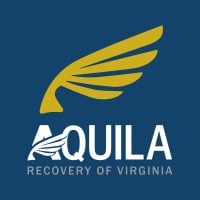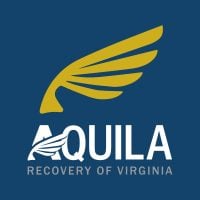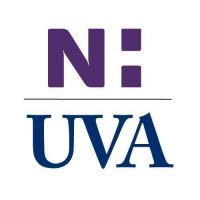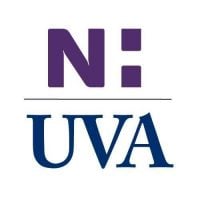Bridging the Gaps
Drug Rehab Center in Winchester, Virginia
Bridging the Gaps is a CARF-accredited addiction treatment facility in Winchester, Virginia, offering various programs and levels of care, including detoxification, residential treatment, outpatient treatment, aftercare support, and intervention services, with over 30 years of experience helping clients recover from substance abuse.
About This Virginia Facility
Bridging the Gaps is an integrative addiction treatment center located in Winchester, Virginia, devoted to optimizing recovery through exceptional quality of care. The facility provides compassionate and comprehensive treatment for adults with substance use disorders in a supportive environment.
The center's approach continuously evolves to deliver the best care and quantified outcomes, utilizing integrated best practices. There is no status quo; programs, facilities, and processes are consistently improved to provide exceptional treatment.
Accredited by CARF and state-licensed, Bridging the Gaps offers a wide range of evidence-based treatment methods and levels of care. These include residential treatment, detoxification with 24/7 medical support, intensive outpatient services, individual and group counseling, aftercare planning, and more.
- Personalized treatment plans tailored to individual needs
- Experienced, compassionate staff dedicated to client success
- Holistic approach addressing mind, body, and spirit
- Continuum of care from detox through aftercare planning
Bridging the Gaps specializes in treating alcoholism, drug addiction, opioid use disorders, and co-occurring mental health conditions. The facility's comprehensive services provide a strong foundation for lasting recovery.
For those struggling with alcohol or drug addiction in the Winchester area, Bridging the Gaps offers a supportive, evidence-based path to sobriety. The center's individualized treatment approach and continuum of care give clients the tools and support needed to achieve long-term recovery success.
Genders
Ages
Modality
Additional
Accreditations
State License

CARF
The Commission on Accreditation of Rehabilitation Facilities (CARF) is a non-profit organization that specifically accredits rehab organizations. Founded in 1966, CARF's, mission is to help service providers like rehab facilities maintain high standards of care.
Conditions and Issues Treated
Rehab centers in Virginia exist to help individuals bounce back from substance abuse. Drug addiction refers to the use of illegal drugs and improper use of prescription drugs. Substance abuse includes all problems that stem out from using psychoactive substances. Centers like Bridging the Gaps are here to help.
Opioids are a set of drugs prescribed for pain relief. Opioid addiction for Virginia residents refers to the compulsive seeking of opioids, even when they are not required medically. Treatment involves medication-assisted therapy in which medicines, counseling, and behavioral therapies are all utilized at Bridging the Gaps.
A dual-diagnosis describes two medical issues that are happening at the same time. They may or may not be related. Over 50% of people with an addiction in Virginia have another mental health condition. Screening for both addiction and any untreated mental health issue is essential, and individually managed by Bridging the Gaps.
Levels of Care Offered at Bridging the Gaps
This center offers a variety of custom treatment tailored to individual recovery. Currently available are Aftercare Support, Detox, Drug Rehab, Dual-Diagnosis, Inpatient, Intensive Outpatient, Intervention, Outpatient, Partial-Hospitalization, Residential, Sober-Living / Half-Way, with additional therapies available as listed below.
An addict may have to go through alcohol or drug withdrawal. While detox may be uncomfortable, it is not life-threatening. Detoxification allows the addict to rid the body of all traces of drugs or alcohol and gives the addict a clean slate for their recovery. In an inpatient or outpatient setting, detox can be managed medically.
Inpatient treatment takes place when a patient checks into a rehab facility. Patients at Bridging the Gaps receive round the clock care that includes detoxing and therapy. Although outpatient treatments are available, inpatient care is recommended as the first step in rehabilitation. The intensive and comprehensive treatment sets patients on a path for drug free living.
Bridging the Gaps offers an Intensive Outpatient Program is for those who need intensive care but prefer to spend the majority of their time in the comfort of their own home. The rehabilitation services differ in length and intensity. They are customized to meet the needs of the patient.
An alternative choice for inpatient rehabilitation or residential services is the partial hospitalization program (PHP). Patients remain in a hospital closer to Bridging the Gaps center in Winchester, VA and spend several hours a day undergoing various therapy types. The period of treatment ranges from one to six months.
Sober living houses reinforce healthy living behaviors and can help prevent relapse. They are designed to feel more like a home with greater independence and privacy. A sober living house in Winchester, VA managed by Bridging the Gaps might incorporate random drug screening, curfews, rotating chores, group meetings.
Residential treatment programs are those that offer housing and meals in addition to substance abuse treatment. Rehab facilities that offer residential treatment allow patients to focus solely on recovery, in an environment totally separate from their lives. Some rehab centers specialize in short-term residential treatment (a few days to a week or two), while others solely provide treatment on a long-term basis (several weeks to months). Some offer both, and tailor treatment to the patient’s individual requirements.
Not everyone who struggles with addiction in Virginia is ready to go into a treatment program. For these individuals, intervention services may help. Friends and family of the individual can call and set up an intervention. We have a professional come and lead the discussion.
Aftercare support refers to the follow-up care provided after the initial rehab program. The quality of aftercare support plays an important role in preventing relapses and sustains recovery. Aftercare support at Bridging the Gaps is personalized according to the needs of the patient in Virginia.
Therapies & Programs
Individual therapy refers to one-on-one psychotherapy between a patient and their Bridging the Gaps therapist. Individual therapy seeks to help identify the issues that drive and contribute to a client’s addiction or alcoholism. Another goal of individual counseling is to assist the client to learn how to manage their lives without alcohol or drugs.
Group therapy occurs in a group setting as opposed to a one on one setting. It benefits patients by providing a feeling of support and letting them know they are not alone. Patients at Bridging the Gaps also learn to build trust and understanding and gain perspective through discussions.
After experiencing trauma, it’s crucial to look for a facility that can provide trauma therapy. This approach zeroes in on the traumatic incidents that a patient has encountered in the past, recent or not. It’s been widely known that trauma can make an individual resort to alcohol or other substances to mask their troubles and pain. Trauma can originate from domestic violence, sexual abuse, an early encounter with death, sexual assault, and many more. The goal of trauma therapy at Bridging the Gaps in Winchester, VA is to help the patient see beyond the trauma and move forward. Mental health professionals will facilitate the patient’s journey and see to it that he or she is no longer a victim of his or her traumatic experiences and has wholly regained his or her personal power.
DBT, also known as dialectical behavior therapy, is a form of cognitive behavioral therapy (CBT) that helps people understand how their thoughts, behaviors, and feelings all connect. This can give them more control over their actions, effectively stopping self-harm ideations and attempts in some patients. It can also help put people in control over some mental struggles, like borderline personality disorder.
Most individuals suffering from addiction have low self-awareness, so they end up making poor decisions. Cognitive Behavioral Therapy (CBT) is suitable for patients recovering from an addiction of any kind. Through it, patients become more aligned with their thoughts, emotions, and behaviors, giving them a better opportunity to respond appropriately to temptations and negative feelings.
This therapy modality at Bridging the Gaps in Winchester, VA strengthens a person’s ability to stay on top of their emotional state and learn new stress management techniques so they won’t give in to the temptations easily. Moreover, CBT helps people communicate and express their emotions well, which can be vital in relapse management. CBT is also suitable for managing co-occurring disorders like depression and bipolar illness.
Rational Emotive Behavior Therapy sees a person suffering from substance addiction to have illogical reasoning, counterproductive actions, and does not see things clearly. REBT at Bridging the Gaps in Winchester, VA deals with cognition, images, and behavior extensively to rectify the client’s bad habits. The process calls for practice, reiteration, and bolstering the new way of thinking being introduced to the patient.
When it comes to maintaining sobriety, people who quit recovery without developing life skills are disadvantaged. While teaching life skills at Bridging the Gaps is difficult, support with aftercare helps patients learn these skills over time. Life skills include getting a career, living in a good environment, self-care, and finance management, all in Winchester, VA.
A 12-Step Program is a common method that is used to treat addiction. This format is used for both drug and alcohol treatment. It is extremely popular and successful for large numbers of people. It is a relatively simple set of steps that are done continuously in order to move through life with awareness, accountability and honesty. 12-Step programs are available in most every city in the Unites States. They are available in person, electronically and virtually through phone or web-based meetings.
Nutrition Therapy, or Medical Nutrition Therapy (MNT), focuses on improving a patient’s mental and physical health through diet. A diet that is low in certain nutrients can lead to emotions that can trigger addiction or relapse. Bridging the Gaps‘s Nutritional therapy promotes healthy eating to heal the body and prevent addictive behavior.
Contingency management (CM) is a system that rewards patients for positive behavior. Patients may get a gift for a clean drug test. They may also get punished for negative behavior. The therapy inspires patients to engage in healthy behaviors and limit unhealthy behavior. It is effective in treating addiction and other issues.
Patient Experience
Creative Arts
Creative arts therapy helps people in recovery at Bridging the Gaps explore feelings and emotions in a safe environment. Journaling, music, and visual arts, among many others, can help people express themselves in new ways. The goal of creative arts therapy is not an end-product; rather, the process of creating art itself is therapeutic.
Experiential Therapy at Bridging the Gaps
Experiential therapy is a non-traditional treatment that uses physical activities to help work through troubling emotions. Role-playing, use of props, and re-enactments are just a few common techniques in experiential therapy at Bridging the Gaps. Its goal is to help people work with troubling emotions, memories, and trauma that are the source of their psychological issues
Fitness Therapy
Recovery from addiction involves recovering the body and mind. Addiction can damage your health in many ways. Learning how to take care of yourself includes physical fitness. Exercise can release feel good chemicals and can further contribute to positive self-esteem. Self-discipline can be practiced through an exercise regimen as you learn how to take care of yourself. Studies have shown that exercise increases abstinence rates, ease withdrawal symptoms and improve depressive symptoms for those in Winchester, VA.
Payment Options Accepted
For specific insurance or payment methods please contact us.
Is your insurance accepted?
Ask an expert, call (888) 674-0062
Additional Details
Specifics, location, and helpful extra information.
Winchester, Virginia 22601 Phone Number(540) 535-1111 Meta DetailsUpdated April 15, 2024
Staff Verified
Patient Reviews
There are no reviews yet. Be the first one to write one.
Winchester, Virginia Addiction Information
The state of Virginia has been struggling with substance use and abuse like the rest of the United States. A little over 10% of the entire Virginia population uses drugs and almost 5% abuse alcohol every given year. This has led to almost 6.5% of all deaths in Virginia being somehow related to alcohol and/or drugs.
Around 5% of the population in Winchester struggles with drug addiction, which means around 3,500 people struggle with addiction. According to the National Institute on Drug Abuse, in 2017, 548 overdose deaths happened in Winchester. Treatment depends on the severity of the addiction and the person's individual needs. In general, rehab programs in Winchester will help addicts detoxify, address any underlying mental health issues, and learn how to live without drugs.
Treatment in Nearby Cities
- Ruther Glen, VA (95.1 mi.)
- Weber City, VA (297.8 mi.)
- Berryville, VA (10.5 mi.)
- Lynchburg, VA (133.2 mi.)
- Bristol, VA (283.0 mi.)
Centers near Bridging the Gaps
The facility name, logo and brand are the property and registered trademarks of Bridging the Gaps, and are being used for identification and informational purposes only. Use of these names, logos and brands shall not imply endorsement. RehabNow.org is not affiliated with or sponsored by Bridging the Gaps.







